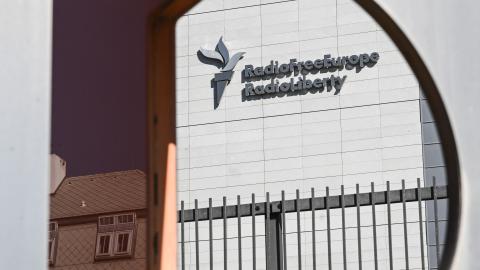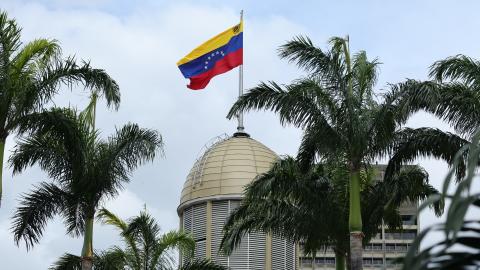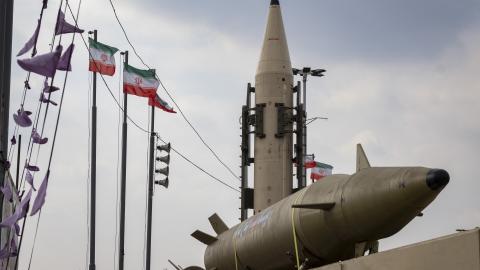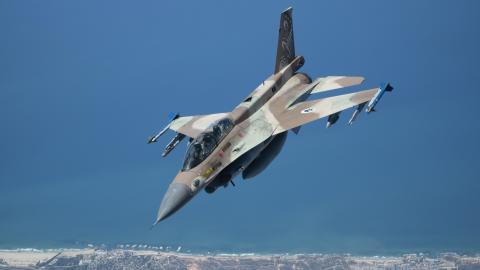John Danforth is back in the public eye. He was Nancy Reagan's longstanding choice to preside at her husband's funeral, which was held on Friday, just a week after President Bush nominated Danforth to represent the United States at the United Nations. To understand why this former senator who retired from politics nearly ten years ago is suddenly in the spotlight, it is necessary to appreciate the magnitude of his achievement on a matter close to President Bush's heart, the resolution of the genocidal civil war in southern Sudan.
As U.S. special envoy to Sudan, Danforth was the instrumental figure in achieving a set of substantive agreements signed by the warring parties on May 26. These protocols clear the way for a final peace accord ending the 21-year conflict, which has pitted the Islamist government in Khartoum against non-Muslims in the south and the central Nuba mountains. (This is not to be confused with the long-simmering conflict in the western Sudanese state of Darfur, which erupted in war earlier this year.) Twice as costly in lives as the Rwandan genocide, the north-south war in Sudan has been a concern of Bush's since he took office.
Soon after his inauguration, Bush took steps to ensure that U.S. aid--routinely blocked by Khartoum--reached the needy. And he became the first president to emphasize the Sudanese conflict in a public speech. In a departure from previous policy--a Clinton administration white paper had called Sudan a "back-burner" issue--Bush laid the blame for the bloodshed squarely on the National Islamic Front regime, whose crimes he likened to the Holocaust.
This was no exaggeration: Two million have died and 5 million more have been displaced. Virtually all of the victims have been southerners or Nubas. Since seizing power in a 1989 military coup, President Omar Bashir has sought to impose an extreme version of Islamic law, or sharia, on all of Sudan, instituting punishments such as stoning for adultery, amputation for theft, and crucifixion for blasphemy. The regime early made common cause with Osama bin Laden, whom it harbored into the mid-1990s while he was building up al Qaeda. To wage jihad against the rebellious animists and Christians, Bashir's government resorted to bombing, ground invasions, and the capture of over 10,000 slaves. By barring international relief, it caused mass starvation and disease.
The violence was far from spent when Bush came to Washington. After oil production began in 1999, Khartoum purchased MiGs and other sophisticated weaponry. In September 2001 alone, over 200 bombing attacks by Khartoum--on targets including churches, schools, clinics, markets, and people lined up at relief distribution sites--were reported.
Early that month, President Bush (overruling his own secretary of state, who had planned to phase out irregular diplomatic posts) launched Danforth's mission as special envoy in a Rose Garden ceremony. It was a landmark moment for the religious and human rights leaders in attendance, whose Sudan coalition had gotten nowhere with the Clinton administration. Five days later, al Qaeda struck New York.
Danforth went ahead with a scheduled visit to Sudan. Saying he was from the "show me" state of Missouri, he insisted on specific actions, not words. Few expected much would come of the effort. But the timing proved providential, and Danforth's steady, plainspoken approach paid off. In late 2001, Khartoum began allowing food aid into the Nuba Mountains for the first time in a decade, as well as to famished areas in the south. The following months saw an end to the slave raids and a cease-fire, all of which Danforth had demanded.
In July 2002, Khartoum and the main southern rebel group, the SPLA, met in Kenya under the auspices of the Inter-Governmental Authority on Development (IGAD), a grouping of Sudan's neighbors and interested nations including the United States. Similar meetings over the previous seven years had been fruitless. This time, the deadlock was broken, and the parties agreed to a framework for peace. Talks then began on the particulars. In October 2002, President Bush signed the Sudan Peace Act, which Congress had passed with strong bipartisan support, ratcheting up pressure for results from the negotiations.
The talks continued for nearly two years. Repeatedly, Danforth helped keep the parties at the table. Now, with the success of the talks and the signing of the substantive protocols, peace has come to southern Sudan for the first time in a generation. Thousands are streaming out of displaced-person camps back to their villages and slaughtering bulls in celebration. The documents signed last month stipulate the limits of sharia and settle other thorny issues. The devil may lurk in the implementation, but observers are optimistic that a final peace will be signed within a month or two.
In all this, the United States has stood virtually alone. Europe allowed its oil companies to partner with the Bashir regime and funded the regime's "human rights" commissions--as if the slave raids and forcible mass starvation were problems of underdevelopment. The Chinese and Malay governments directly invested in Khartoum's oil partnership.
Africa as a whole was indifferent to the suffering, and voted to have Khartoum represent it on the U.N. Security Council and Human Rights Commission. The Arab League treated Khartoum as an esteemed member. What made the difference in the end were unilateral American diplomatic and economic "sticks," the credible threat of military pressure, bipartisan action by Congress, and the resolute leadership of President Bush--of which the appointment of Danforth was a pivotal part.
Ending the atrocities of a sitting government through peaceful negotiation, of course, fails to produce regime change. Khartoum thus is at liberty to continue its ethnic cleansing in Darfur, where it has already killed at least 10,000 people and displaced a million, often to harsh refugee camps. The besieged African tribes in Darfur are largely Muslim; but like the Nuba Muslims, they speak tribal languages, not Arabic, and their Islam is of the moderate, Sufi variety--making them apostates and fair game for killing in the eyes of the Islamists in Khartoum.
President Bush has publicly condemned the assault on Darfur. He retains U.S. economic sanctions, and has designated $288 million in relief for Darfur. Elsewhere the issue generates little interest. U.N. secretary general Kofi Annan and some European leaders have expressed concern, but they have mostly failed to act; the aid to Darfur mustered by the 25 E.U. nations totals $12 million. Given the Bush administration's record on Sudan so far, John Danforth's arrival at Turtle Bay may bring a new day.














